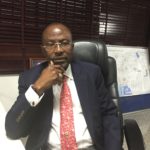
Nigeria has continued to attract more international airlines as the country maintains position as a dependable market because of its huge passenger traffic.
A top official of the Federal Airports Authority of Nigeria (FAAN) told THISDAY that many factors made this possible and this include the fact that Nigeria has increasing number of travellers, which ensures that airlines have high load factor.
The second reason is that Nigeria does not have reciprocal bilateral service because Nigerian airlines have not started competing effectively on international routes, so the foreign airlines face no local competition; rather, they compete among themselves.
The FAAN official noted that few airlines have also left Nigeria like United Airlines and Air Namibia, but more airlines have started operation into the country, including the latest entrant, Cabo Verde Airline, a national airline of Cape Verde Island that would start operation to Lagos on December 9, 2019.
Industry stakeholders have noted that the more foreign carriers come into the country without reciprocal service by indigenous airlines, Nigeria lose money because more foreign exchange is repatriated by international airlines and this contributes in weakening the naira.
Recently the Minister of Aviation, Hadi Sirika said Nigeria’s efforts on liberalisation have led to significant increase in the operations of foreign and domestic utilisation of airports in the country.
This he said had resulted in the annual traffic growth of over 8 per cent and recorded 12.6 per cent growth this quarter as the second fastest growing industry after water and sanitation.
Sirika made this known at the 40thInternational Civil Aviation Organization, ICAO, Assembly in Montreal, Canada recently and stated that with 200 million people and 923,766 square kilometers of landmass, the present administration had resolved to make Nigeria the hub of West and Central Africa sub-region and make air travel the preferred mode of transportation.
“We are fully aware that achieving this would require a robust industry that is safe, secured and efficient and environmentally friendly with modern and adequate infrastructure”.
According to him, concerted efforts have been made in the areas of safety, security and collaboration with aviation organisations among others to attract investments, grow and development of the industry.
While emphasising that infrastructure was essential in achieving the aviation of their dream, he listed steps so far taken in this regards to include runway reconstruction, perimeter.
“Nigeria has embarked on infrastructure resuscitation and has made substantial investment in the provision of modern landing and navigational equipment, upgrade and replacement of airport infrastructure facilities including runway re-construction, airport perimeter fencing, fire fighting and other rescue equipment, airfield lightning etc”.
But industry operators posit that a nation cannot successfully operate a hub without having its major airlines having significant chunk of both international and domestic market and that foreign airlines can never make any country become a hub.
Travel expert, Ikechi Uko has noted recently that if government intends to establish a national carrier and at the same time concession the airports, the planned national carrier may not be successful in the long run because “in Africa a national carrier and airport concessions does not go together.
This is because national airlines need the airport to survive, as it has been established that airports make more money than airlines.
This has prompted Kenya Airways to go into synergy with its major airport, a model, which Ethiopia Airlines has successfully operated for years.
“I am of the opinion that a national airline has to own airports to be viable. In Africa a national carrier and airport concessions do not go together. So Kenya found a way out. Instead of giving the airline the airport they are consolidating all the assets like the Ethiopian model,” Uko said.
So while FAAN may be earning more revenues from landing, parking and passenger service charge as more airlines operate into Nigeria; and the Nigerian Airspace Management Agency (NAMA) earns revenue from enroute charges, Nigeria might be losing money through capital flight to these foreign carriers that operate into the country.
THISDAY






